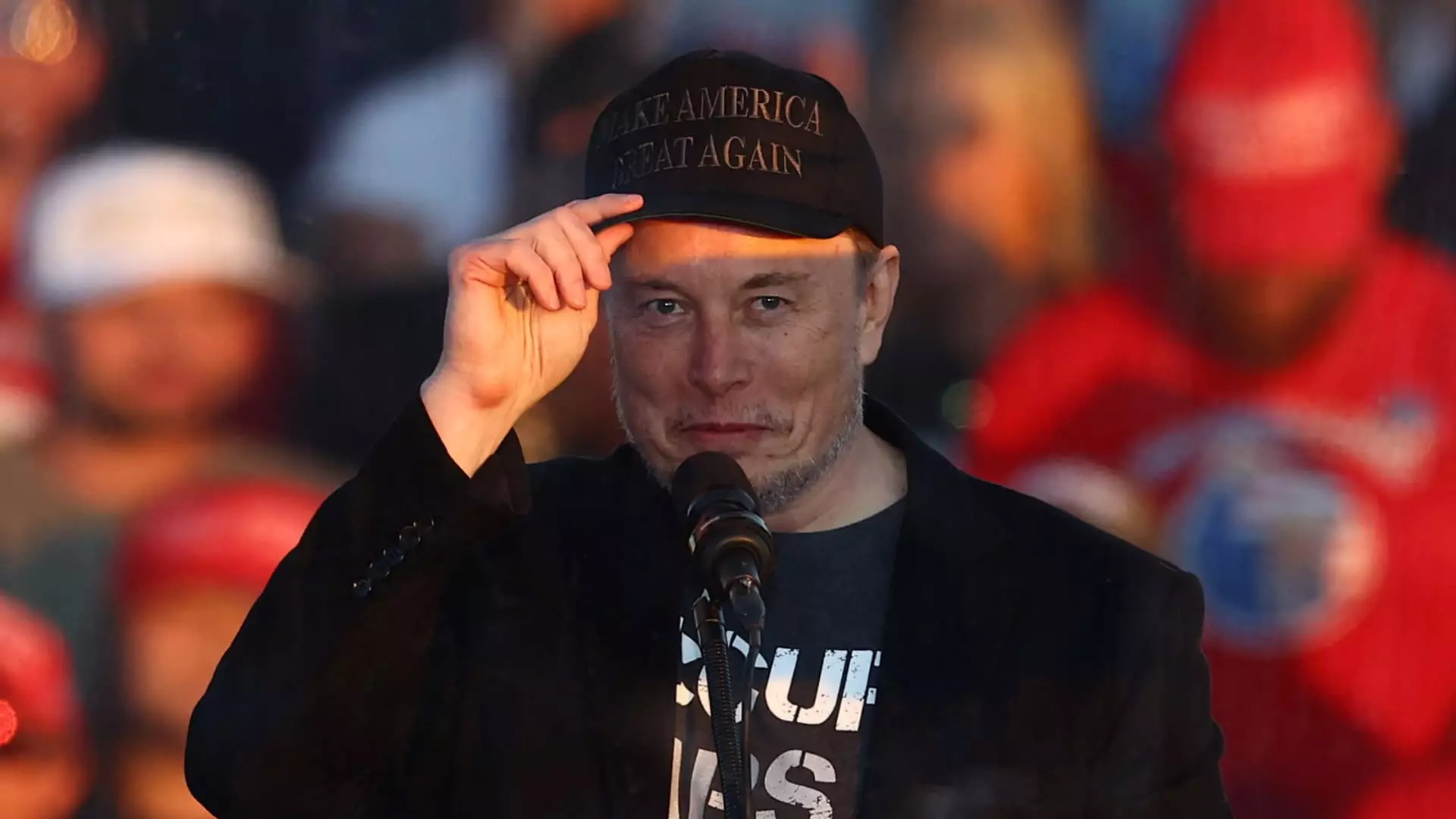Elon Musk, the multifaceted entrepreneur and CEO of companies like Tesla and SpaceX, has always been a figure of considerable influence, particularly in the realms of technology and innovation. However, his recent ventures into political endorsement raise significant eyebrows. His endorsement of Germany’s far-right Alternative for Germany (AfD) party has sparked a wave of criticism and concern. This article delves into the ramifications of Musk’s political maneuvering and the broader implications for democracy and public discourse.
On a recent evening, Musk took to social media platform X to express his support for the AfD, claiming, “Only the AfD can save Germany.” With a follower count exceeding 200 million, such statements are bound to carry weight. The endorsement coincided with a post from Naomi Seibt, a controversial figure known for her links to white nationalism and denial of climate science. This alliance raises questions about the motivations behind Musk’s support and the potential impact on German and European politics at large.
Political leaders in Germany have not taken Musk’s comments lightly. Chancellor Olaf Scholz dismissed Musk’s assertion, highlighting the AfD’s extremist credentials. U.S. Senator Chris Murphy criticized Musk for supporting a party he described as attempting to rehabilitate the legacy of Nazi ideology. Such responses underscore a vital point: the potential for a single billionaire’s opinions to sway public perception and potentially influence elections represents a troubling trend in modern democracy.
Despite their controversial positions, the AfD has been gaining traction in Germany, positioning themselves as a leading force within the political landscape. Polls suggest the party could assume a significant role in the upcoming February elections, primarily fueled by dissatisfaction with the existing political options. The rising appeal of far-right rhetoric is not isolated to Germany; similar movements have been observed across Europe, raising alarms about the political environment and societal fractures that underpin such developments.
Musk’s political endorsements have not been restricted to Germany. He has extended his support to various right-wing figures globally, including Italian Prime Minister Giorgia Meloni and the U.K.’s Nigel Farage. These affiliations suggest a cohesive ideology that aligns Musk with populism and far-right movements. This trend warrants scrutiny as it may reflect an overarching strategy—potentially prioritizing corporate interests over ethical considerations.
The economic discourse surrounding the AfD is equally complex. The party has criticized Tesla’s operations in Germany, claiming that the workforce’s commuting patterns undermine local community benefits. By challenging the economic implications of electric vehicles—a key aspect of Musk’s business— they are merging economic concerns with nationalist sentiments. This increasingly polarized debate reveals how intertwined economic narratives and political ideologies can become, complicating the landscape for foreign investment in Europe.
Musk’s influence underscores a larger trend: the erosion of traditional democratic discourse in favor of personality-driven politics. As influential figures like Musk weigh in on global issues, there is a risk of escalating polarization, where complex socio-economic challenges are reduced to simplistic narratives, potentially fostering division within societies. The involvement of tech moguls in politics raises ethical questions about transparency, accountability, and the extent of individual influence on public policy.
The intersection of technology, wealth, and politics exemplified by Musk’s recent actions underscores an urgent need for societal vigilance. As we navigate this convoluted political landscape, it is imperative to critically evaluate the motivations behind endorsements and the potential repercussions of aligning with extremist ideologies. Continued scrutiny of both corporate and political actors will be essential in safeguarding democratic processes and fostering a healthier public discourse in these troubling times. Only through engagement and dialogue can we hope to counteract the forces that threaten the integrity of democratic institutions worldwide.


Leave a Reply